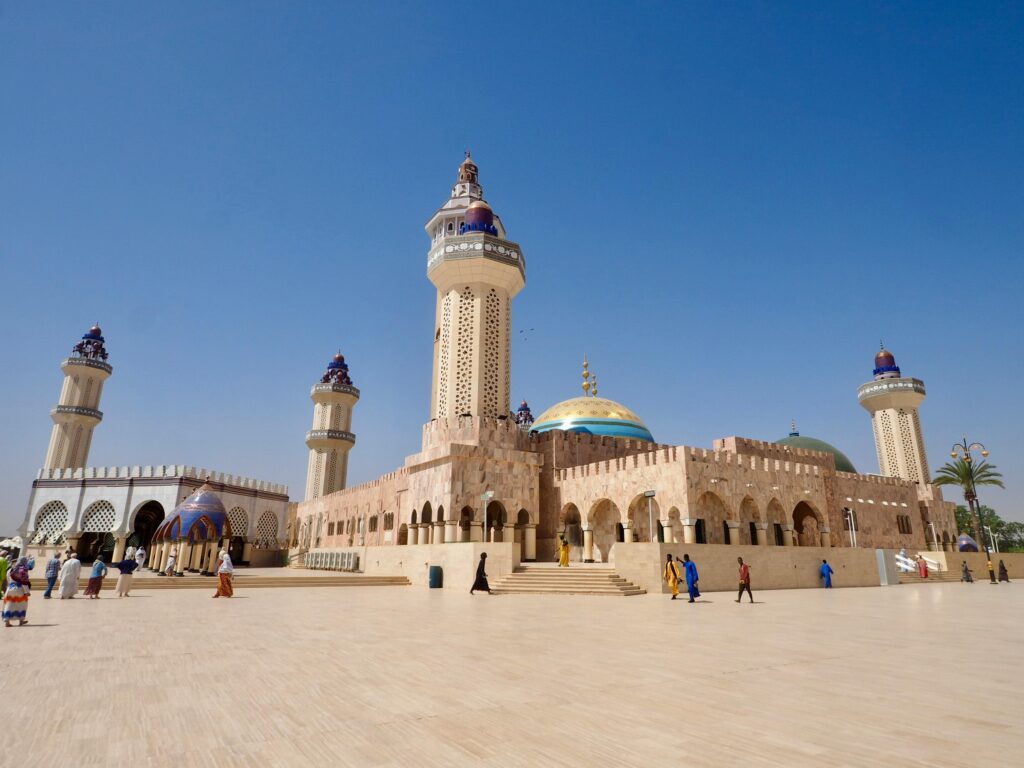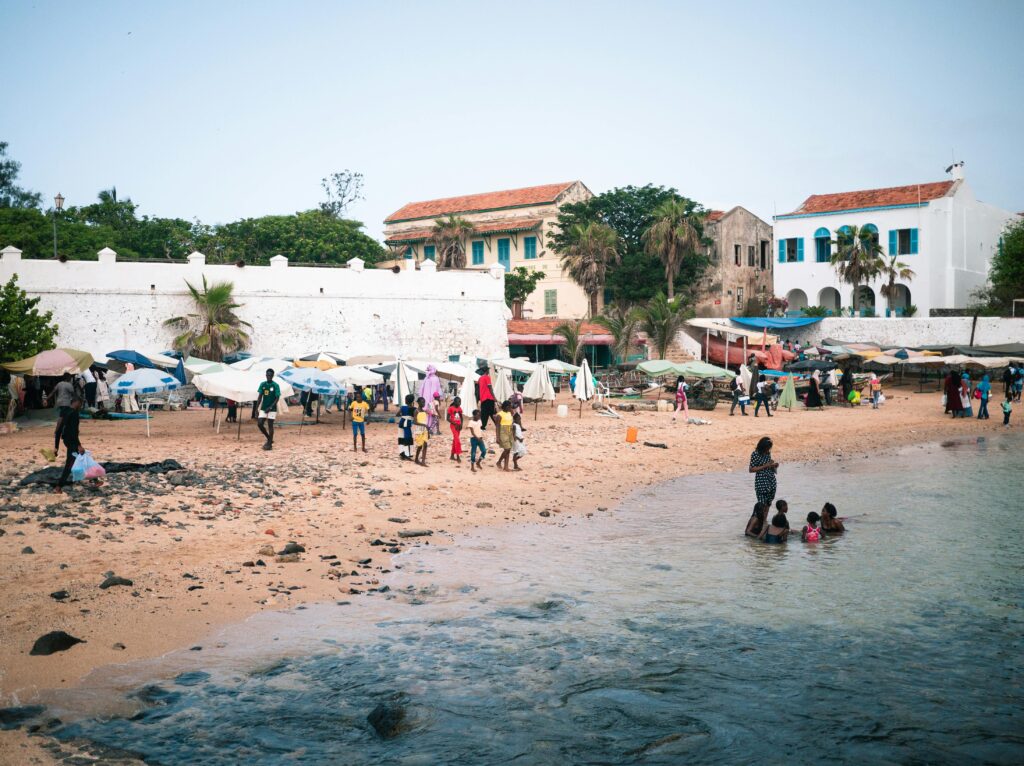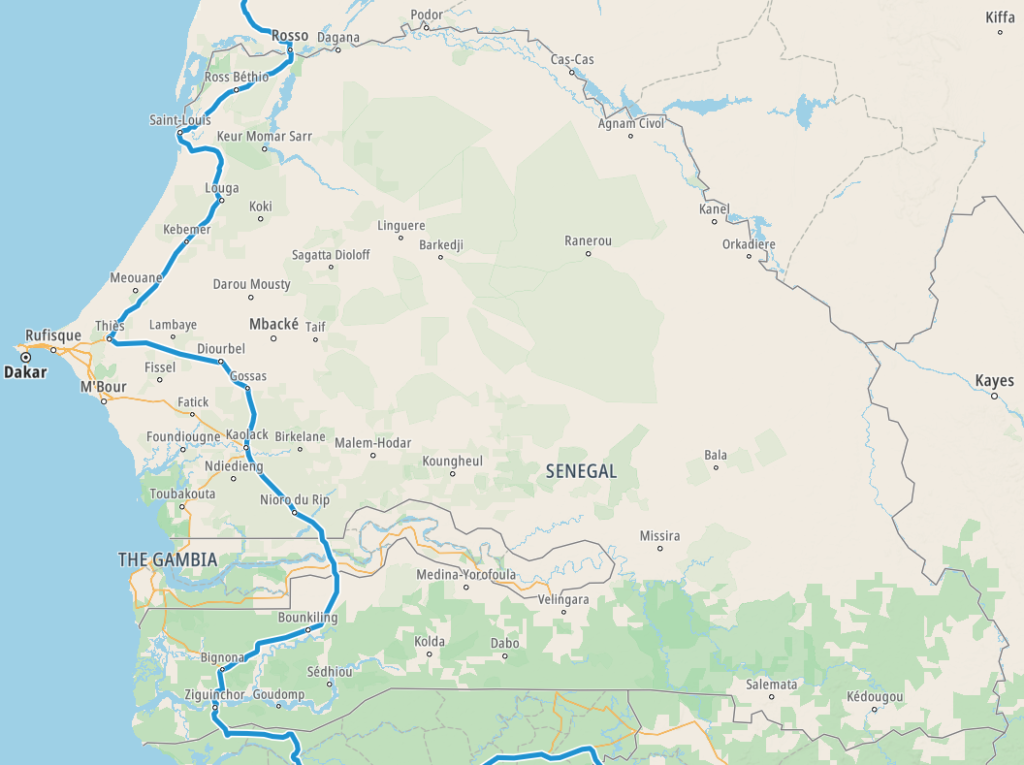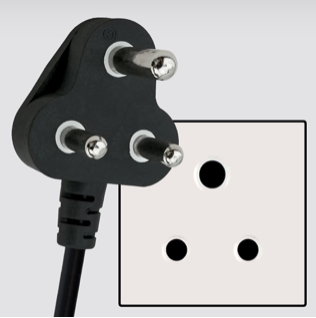Senegal / République du Sénégal – Let’s explore here

What’s it like in Senegal?
Senegal is a poor, mainly flat country in western Africa, located on the coast of the Atlantic Ocean. The capital, Dakar [famous for the rally that used to be here], is the most westerly point on the continent. The terrain mainly consists of savannah grasslands and mangrove swamps. The highest point is Baunez ridge, at 2,126 ft, (648 m) above sea level.
It has a very rich, interesting and mostly stable history. It shares land borders with Mali, Mauritania, Guinea, Guinea-Bissau, and The Gambia, the latter of which sits entirely within Senegal.
The population of Senegal is around 19 million people (2024), about one in five of whom live in the metropolitan area of the capital, Dakar.

A bit about the history of Senegal
Pre-Colonial Era
Before European colonisation, Senegal was home to powerful societies, including the Kingdom of Ghana and the Wolof Kingdoms. It was also part of the Mali Empire in the 14th century. These societies thrived due to trade and political organisation, particularly in the trans-Saharan routes.
Colonial Period
In the late 15th century, the Portuguese arrived, followed by the French, who established control by the 17th century. Senegal became a major part of the French Empire’s transatlantic slave trade, with Saint-Louis and Gorée serving as key slave trading posts. By the 19th century, it became part of French West Africa, with French colonial policies influencing local society.
Independence Movement
Senegal’s independence movement grew in the early 20th century, led by figures like Léopold Sédar Senghor. The country gained full independence from France on 4 April 1960, and Senghor became the first president, focusing on political stability and nation building.
Post-Independence Period
Under Senghor, Senegal established a stable political system and promoted the ‘negritude’ movement, celebrating African culture. After stepping down in 1980, Senghor passed power to Abdou Diouf, who continued similar policies. The country remained stable, although poverty persisted.
Democratic Transitions and Political Changes
In 2000, opposition leader Abdoulaye Wade peacefully won the presidency, marking a significant democratic transition. Wade’s presidency (2000–2012) was marked by economic reforms, although his administration faced criticism for corruption. Macky Sall succeeded Wade in 2012, continuing Senegal’s democratic principles.
Senegal in the 21st Century
Under Macky Sall, Senegal focused on infrastructure, economic diversification, and foreign investment, particularly in the energy sector with offshore oil and gas discoveries. Senegal also became an important regional leader through peacekeeping efforts and regional cooperation.
Senegal in 2025
As of 2025, Senegal remains politically stable and democratic. The country faces challenges such as unemployment, poverty and inequality but continues to grow economically, with a focus on responsible management of oil and gas resources. Senegal’s institutions remain strong, ensuring its role as a key player in West Africa’s development.

Senegal road trip
Our Senegalese road trip is part of a much larger African road trip.
Our planned road trip through Senegal takes us from Mauritania towards Dakar, before heading on through Gambia and back through Senegal towards Guinea-Bissau. No doubt we’ll explore the country much more than this continent-spanning short route shows, in particular checking out the capital and inland Senegal.
Hopefully our journey will improve our knowledge of this intriguing and beautiful country, and enable us to meet some interesting people. We’ll be updating this page at that time – don’t forget to check back 🙂
Map of our road trip through Senegal

What’s it like to drive in Senegal?
They drive on the right hand side of the road in Senegal. In the main, roads are quite good, although many are unsurfaced dirt tracks. Driving standards are poor however.
Do you require an international driving permit in Senegal?
We’ve created a dedicated page to driving abroad, which answers this question, and more, which you might find helpful.
Can you use your UK driving license when driving through Senegal?
We’ve created a dedicated page to driving abroad, which answers this question, and more, which you might find helpful.
Do I need a carnet de passages to drive in Senegal?
A Carnet de Passages is required to overland in Senegal. We’ve created a dedicated page to driving abroad, which answers this question, and more, which you might find helpful.
What currency do they use in Senegal?
In Senegal they use the West African CFA franc. Cash is widely used. The use of credit / debit cards is not widely accepted. Travellers cheques are generally accepted. There are ATMs in larger cities.
The West African CFA franc is used in Benin, Burkina Faso, Guinea-Bissau, Côte d’Ivoire, Mali, Niger, Senegal and Togo.
You should make yourself aware of the amount that your bank charges you for using credit and debit cards abroad. Often credit cards are cheaper for purchasing items directly, and for withdrawing cash from ATMs.
What language do they speak in Senegal?
They mainly speak Wolof in Senegal, although French is also widely spoken, and is the official language. English is not widely spoken.
What time zone is Senegal in?
Remember, when you’re planning your next trip to take a look at what time zone it’s in.
Do I need a visa to visit Senegal?
We’ve created a dedicated, more comprehensive page on visas, which you should find helpful. Check it out!
Is wild camping legal in Senegal?
Yes, wild camping is fine in Senegal.
What plug / socket type do they use in Senegal?
In Senegal they use plug / socket types C, D, E and K.




Health issues in Senegal
Is it safe to drink water in Senegal?
No, it is not safe to drink tap water in Senegal. Bottled water is readily available throughout the country.
What vaccinations are required for Senegal?
This NHS website is kept up to date with all relevant information on vaccinations in Senegal.
Phones in Senegal
What is the country calling code for Senegal?
The country calling code for Senegal is +221
What are the emergency phone numbers in Senegal?
- The emergency number for police in Senegal is: 17
- In Senegal, the emergency number for ambulance is: 18
- The emergency number for fire in Senegal is: 1515
If you’ve got some useful info that you’d like to share, let us know!
And don’t forget to check out all the other pictures!
